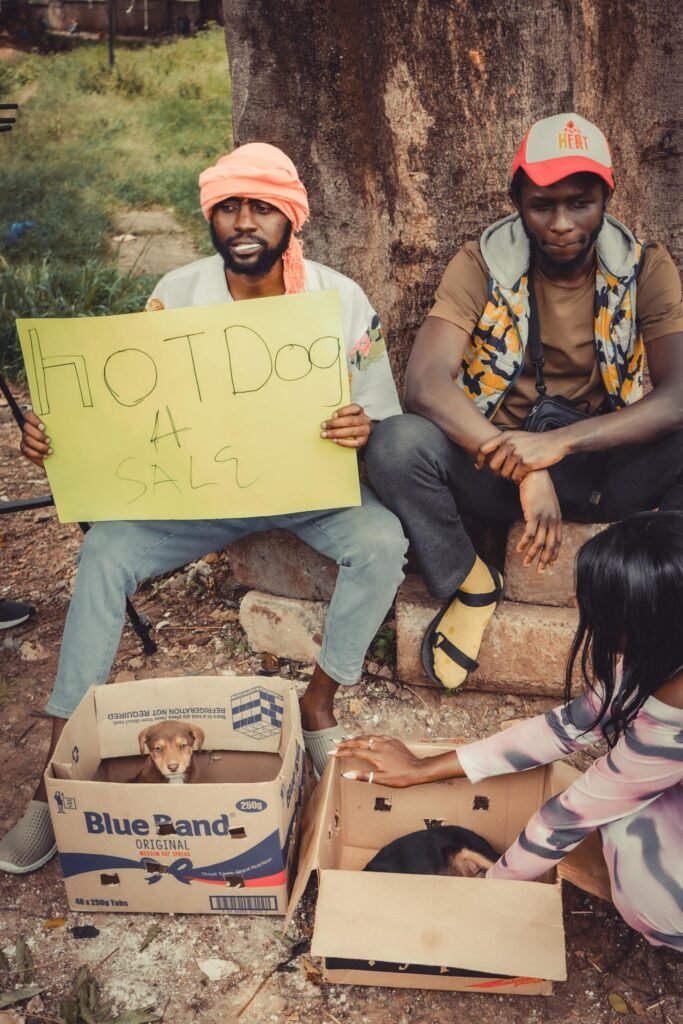Dust: At one point in life we will all see it.
There is nothing more Kenyan in our daily interactions than our legendary phrases. One of them is kuonyeshwa dust: a funny, painful twist at how people discover they were either being cheated on, conned, or taken for granted. For onlookers, it’s comedy gold. For the survivors? It’s therapy, heartbreak, and resilience all rolled into one. And as Kenyans will tell you – dust is constant.
So when Hello Africa Network, together with the talented team at Afro Imagination, dropped a 13-part Instagram reel series called Dust, the title alone felt like a warning and a wink. What followed was a surprisingly addictive soap, rooted in the chaos of Nairobi life, that had me binging reels like I’d accidentally stumbled onto Netflix with free Wi-Fi.
The Hook
The brilliance of Dust lies in its pacing. Episode one wastes no time: a simple conversation between Stacy and Jeff about a rocky relationship quickly spirals into hidden intentions, awkward attraction, and a cliffhanger that makes you swipe up for more before you’ve even caught your breath. It’s not just a story; it’s bait. And it works.
From there, the show unpacks the Nairobi playbook: situationships, bromance, mum’s unsolicited wisdom, shady hustles, “mubaba” sponsorships, fake gold chains, business shortcuts, rekindled old flames, and a splash of bro culture advice that’s half genius, half nonsense. The threads are woven together with subtle innuendos and perfectly placed dialogue that never feels forced.
Why It Works
Producing a film is hard. Getting the right actors is harder. But making the audience like them? That’s the hardest part. And this is where Dust hits the jackpot. Characters are introduced so naturally it feels like you knew them before they arrived. No awkward shoehorning, no “by the way, this is my cousin from upcountry” energy. They just slot into the story as if they’d been there all along. That’s rare in Kenyan productions, and Dust makes it look effortless.
The dialogue is another strength. Whether it’s banter between boys in the hood, a mum chastising her son, or a girl dropping subtle digs at her situationship, the conversations feel lived-in. They’re not polished for camera; they’re lifted from real life. And if you pay attention, you’ll catch gems of everyday Kenyan humor – puns, wordplay, sly jabs – the kind you’d hear in matatus, WhatsApp groups, or even in church when the pastor’s wife’s wig takes center stage.
Cultural anchors like fuliza get dropped casually, rooting the story in Nairobi’s lived reality. Meanwhile, themes like simping, hustling, and ego-driven confrontations mirror the conversations already happening on social media. It’s Instagram storytelling about Instagram culture – no wonder it clicks.
Not Without Its Flaws
Of course, no show is perfect. Some arcs could have breathed a little more, and the occasional cliché sneaks in. But here’s the difference: Dust knows when it’s leaning into a cliché, and it treats it with a wink. The predictability becomes part of the fun – you kind of know what’s coming, but in a way that keeps you glued and eager for the twist.
The Dust Effect
By the final confrontation in episode 13, you realize the series has taken you through the full Nairobi rollercoaster: love, betrayal, ego, hustle, heartbreak, and that eternal constant – dust. Yet instead of leaving you empty-handed, it leaves you entertained, validated, and hungry for more.

Final Verdict
Dust is a triumph of Instagram storytelling: quick, raw, relatable, and irresistibly bingeable. It taps into Kenyan social culture with precision, balancing humor and heartbreak in ways that feel both familiar and fresh. It’s the kind of series you text your friend about with, “Okay, this is dumb… but watch it.”
If a film can capture Nairobi’s messy love lives, shady hustles, friendships, and constant dust – and still keep you laughing and nodding in recognition – then it deserves more episodes. Because let’s be honest: in life, and in Dust, the story never really ends.
You must want to watch it now. You can easily find it here.
